Introduction
In the heart of the Middle East, a silent crisis is unfolding, as Gaza grapples with a shocking revelation: one in four people is facing starvation.
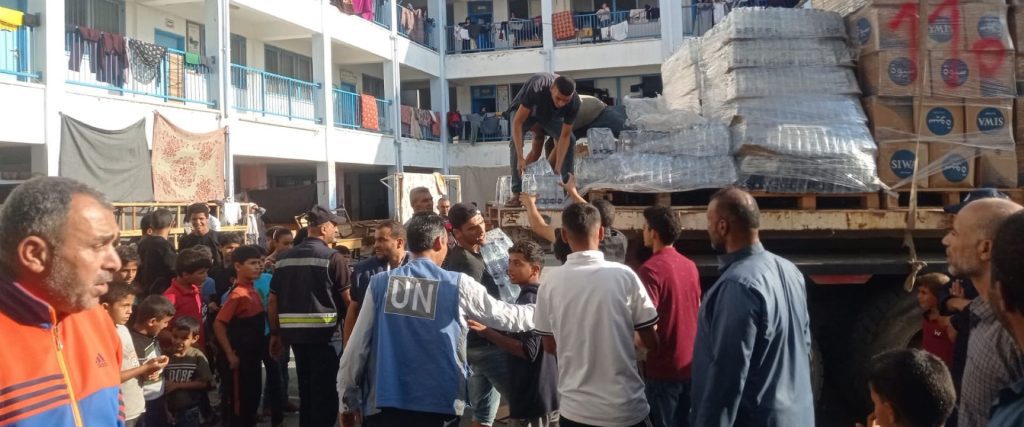
The gravity of this situation is illuminated by a recent UN report, shedding light on a humanitarian catastrophe exacerbated by Israeli brutality. The term “Silent Crisis” encapsulates the urgency and severity of the unfolding events, demanding the attention of the global community. For more information, so please click this link.
Overview of the Food Crisis in Gaza
The UN report starkly unveils a distressing reality – a quarter of Gaza’s population has succumbed to starvation, surpassing the hunger rates of nations like Afghanistan and Yemen.
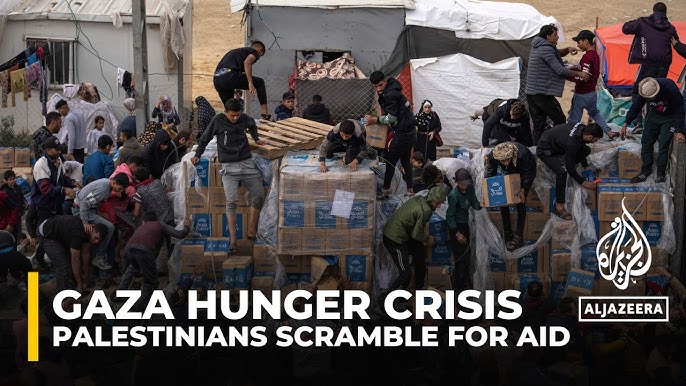
The statistics paint a grim picture of the food crisis, underscoring the immediate need for intervention and relief efforts. This crisis goes beyond mere statistics; it represents a profound threat to the very fabric of Gaza’s society. For more information, so please click this link.
Humanitarian Crisis Caused by Israeli Brutality
The UN report unambiguously attributes the humanitarian crisis to the ongoing Israeli aggression, leading to dire consequences for the people of Gaza.
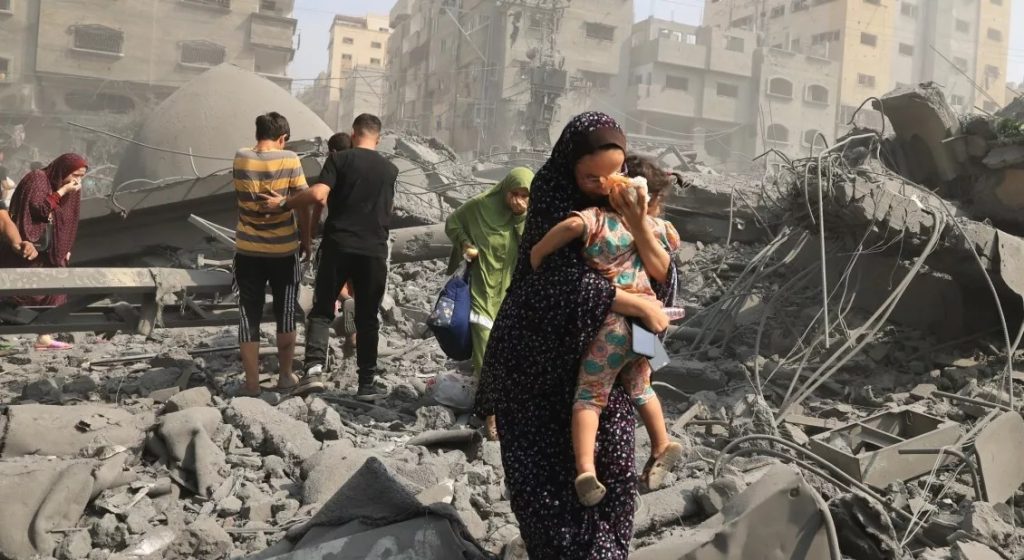
The report outlines the devastating toll of the aggression, with over 20,000 Gazans martyred and 52,000 injured since the onset of Israeli attacks on October 7. The majority of the casualties are innocent children and women, while millions are displaced, bearing the brunt of Israeli brutality.
Worsening Food Crisis
Arif Hussain, an official from the United Nations World Food Program, emphasizes the alarming rate at which the situation is deteriorating, expressing unprecedented concern.
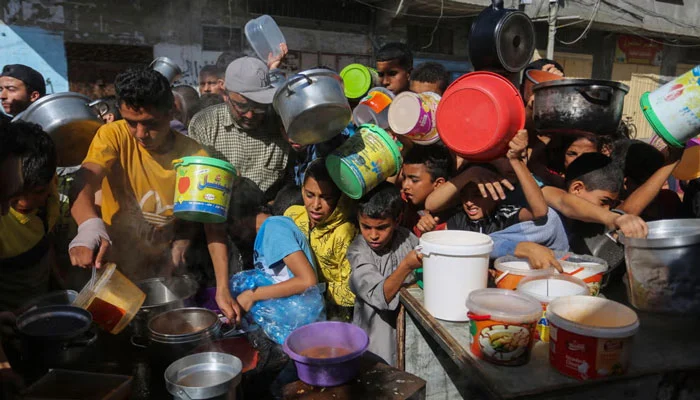
The report warns that insufficient aid reaching Gaza is a primary factor exacerbating the crisis, with each passing day deepening the suffering of the population. The urgency of the situation demands immediate international attention and concerted efforts to alleviate the suffering of the people in Gaza.
Collapse of Gaza’s Medical System
Israeli aggression has not only affected the food supply but has also resulted in the collapse of Gaza’s medical system. According to the World Health Organization, only 9 out of 36 hospitals in southern Gaza are partially functional, leaving the majority of the population without adequate healthcare. The dire state of medical facilities further compounds the challenges faced by Gazans, intensifying the need for urgent intervention.
Insufficient Aid and Starvation
The UN report exposes a harsh reality: a mere 10 percent of the required food has reached the citizens of Gaza in recent weeks. Shockingly, the report attributes the death of 576,600 Gazans to hunger, underscoring the devastating consequences of insufficient aid. UN aid chief Martin Griffiths, expressing little surprise at the report’s findings, emphasizes the need for immediate action to prevent the further spread of hunger and diseases. For more information, so please click this link.
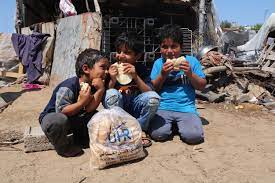
Ceasefire Resolution in the UN Security Council
The backdrop of this crisis is the ongoing Israeli aggression, with the UN Security Council resolution for a ceasefire pending for four days. The delay in voting on the resolution raises concerns about the potential for more devastation in the region and underscores the urgency of international diplomatic efforts. The international community must act swiftly to bring an end to the conflict, providing a lifeline for the people of Gaza.
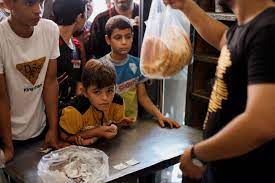
Conclusion
In conclusion, the silent crisis in Gaza demands immediate global attention and intervention to prevent further loss of life and alleviate the suffering of the population. The shocking revelations from the UN report underscore the need for urgent and substantial aid to address the food and medical crises in Gaza. As the world watches, the focus keyword, “Silent Crisis,” resonates as a call to action, urging nations to unite in solidarity to bring relief and hope to the people of Gaza.
Frequently Asked Questions (FAQs) – Gaza’s Silent Crisis
1. What is the Silent Crisis in Gaza?
The Silent Crisis in Gaza refers to the severe humanitarian situation where one in four people is facing starvation, as revealed by a recent shocking UN report. The term “Silent Crisis” underscores the urgency and severity of the unfolding events.
2. What is the primary cause of the food crisis in Gaza?
The food crisis in Gaza is primarily attributed to ongoing Israeli aggression, as highlighted in the UN report. The aggression has led to a devastating impact on the region, affecting the food supply and medical infrastructure.
3. How does the food crisis in Gaza compare to other countries?
According to the UN report, the rate of hunger in Gaza has surpassed even countries like Afghanistan and Yemen, which have experienced famine in recent years. The statistics paint a grim picture of the severity of the crisis in Gaza.
4. What are the consequences of Israeli brutality on the population of Gaza?
Israeli brutality has resulted in over 20,000 Gazans martyred and 52,000 injured since October 7. The majority of the casualties are children and women, with millions displaced due to the ongoing conflict.
5. How has the medical system in Gaza been affected?
The medical system in Gaza has collapsed due to Israeli aggression. According to the World Health Organization, only 9 out of 36 hospitals in southern Gaza are partially functional, leaving the majority of the population without adequate healthcare.
6. Why is the aid reaching Gaza insufficient?
The UN report highlights that only 10 percent of the required food has reached the citizens of Gaza in recent weeks. The worsening food crisis is attributed to the insufficient aid reaching the region, exacerbating the suffering of the population.
7. What does the UN aid chief say about the situation in Gaza?
UN aid chief Martin Griffiths, commenting on the report, expresses that the situation is not surprising. He emphasizes that ongoing devastation on a daily basis can only lead to the spread of hunger and diseases.
8. What is the status of the UN Security Council resolution for a ceasefire?
The UN Security Council resolution for a ceasefire in Gaza has not been voted on for four days, as mentioned in the report. The delay raises concerns about the potential for more devastation in the region and underscores the urgency of international diplomatic efforts.
9. How can individuals contribute to alleviating the crisis in Gaza?
Individuals can contribute to alleviating the crisis in Gaza by supporting reputable humanitarian organizations providing aid to the region. Donations, raising awareness, and advocating for international intervention are ways individuals can make a positive impact.
10. What is the immediate call to action for addressing Gaza’s Silent Crisis?
The immediate call to action is for the international community to unite in solidarity, provide urgent aid, and exert diplomatic efforts to bring an end to the conflict. The focus is on preventing further loss of life and offering relief to the suffering population in Gaza.
